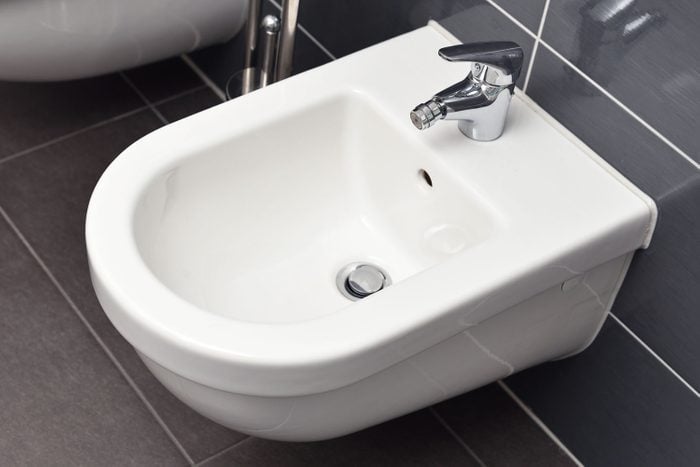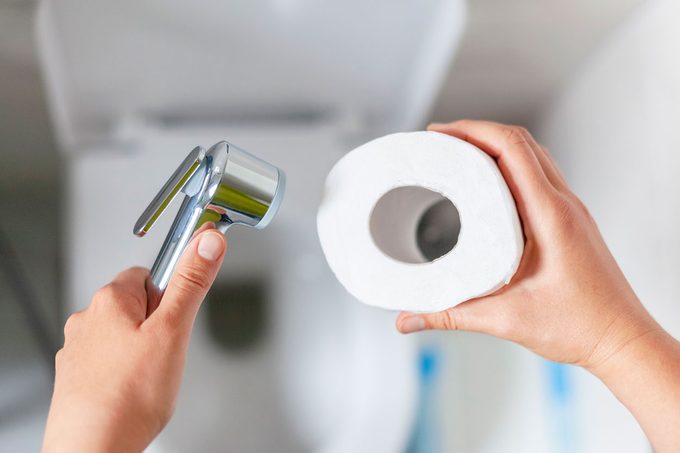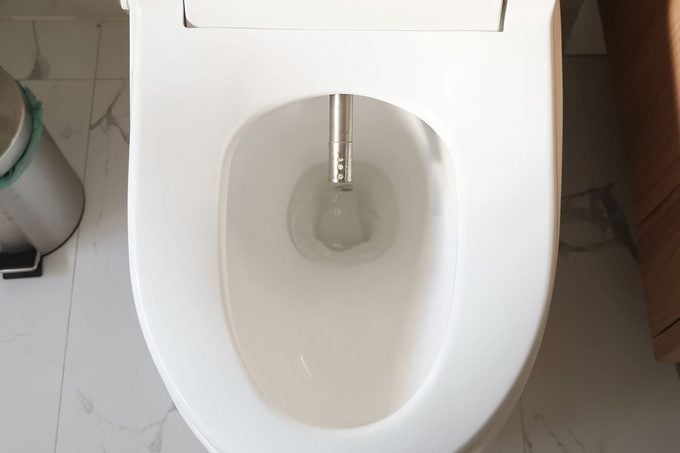You Should Be Using a Bidet Instead of Toilet Paper
Updated: Jan. 10, 2024

Incredibly sanitary and cost-effective, bidets are an excellent choice for many people.
Our editors and experts handpick every product we feature. We may earn a commission from your purchases.
In 2020, prompted by public panic and the pandemic shortage of toilet paper, bidet sales surged in the U.S. Since then, interest in bidets waned. However, bidets are still one of the best home choices you can make for your health, your pocketbook and the planet.
Here’s why you should invest in a bidet, from its superior sanitation to its positive environmental impact.
On This Page
Bidets Are Cleaner than Toilet Paper
A 2022 study compared the microbe contamination on the hands of of 32 nursing students who used a bidet and toilet paper. It found students who used toilet paper had between 39,000 and 77,000 kinds of bacteria on their hands. When students used a bidet, only 4,000 to 11,000 microbes were found — approximately ten times less.
Dr. Christine Lee, an gastroenterologist, addresses the cleanliness of bidets in an interview with the Cleveland Clinic. Using a bidet, she says, makes it less likely to get fecal matter on your hands or nails. “[P]roper hand-washing hygiene is necessary to avoid the spread of germs — and that’s especially true after wiping,” she says.
Unfortunately, one in four Americans don’t wash their hands regularly, according to a 2020 report from the Centers for Disease Control and Prevention (CDC).
Bidets Are Cheaper Than Toilet Paper

According to Statista.com, Americans spent an average of $114 on toilet paper and paper towels in 2022. In contrast, bidets can cost as little as $50 and last for years. While you can spend hundreds of dollars on a bidet, like luxury models from Toto, other companies like Tushy produce durable versions with positive reviews for just $100.
Bidets Are Gentler on Skin than Toilet Paper
Lee says bidets typically support skin health better than toilet paper. That’s because toilet paper can cause chafing, cuts or abrasions, which are not an issue with bidets. Additionally, bidets are typically more comfortable for anyone who suffers from hemorrhoids or anal fissures.
Bidets Are (Generally) More Eco-Friendly than Toilet Paper
According to the Washington Post, the typical American uses about 24 rolls of toilet paper per year. But a spokesman for toilet paper manufacturer Georgia-Pacific told Today.com an average U.S. household goes through more than 400 rolls a year.
That usage requires cutting down millions of trees in the Northern Hemisphere, many from old-growth forests. Each roll requires gallons of water to make, according to Popular Science. Bidets, in comparison, “only use an eighth of a gallon per splash,” Popular Science says.
With this in mind, bidets are generally a much more eco-friendly choice than toilet paper.
How to Use a Bidet Responsibly

If you’re considering purchasing and installing a bidet, be sure to follow these tips for maximum sustainability and cleanliness.
Keep the bidet clean
“If bacteria or virus particles get into the water tank or on the nozzle, everyone who uses [the bidet] can be exposed,” Lee says. “Don’t touch the tip of the nozzle to your body and follow the manufacturer’s manual. Keeping the bidet clean and properly maintained is key.”
Operate the bidet properly
Besides keeping the nozzle away from your skin, Lee suggests checking your water heater before use. “If the water heater malfunctions, the water could deliver scalding hot or shockingly cold water,” she says.
Reduce your TP usage
It may sound obvious, but if you’re using a bidet and toilet paper, you’re increasing your carbon footprint substantially. If necessary, use just a square or two of toilet paper to dry yourself.
Never use flushable wipes
“Flushable wipes” are a misnomer; they actually clog pipes and lead to overflows. These overflows turn into horrific “fatbergs,” or giant blobs of waste that contaminate our waters. Never use these wipes, and avoid flushing menstrual sanitation products as well.
Don’t buy a bidet in a drought
Andrea Hicks, professor of civil and environmental engineering at the University of Wisconsin, tells Popular Science if you live in an area with restricted water usage, it’s “probably wiser to stick to toilet paper.”
The last word
If you feel you can follow all these guidelines, you’re a great candidate to purchase a bidet. Your bottom, your wallet and the planet will thank you!